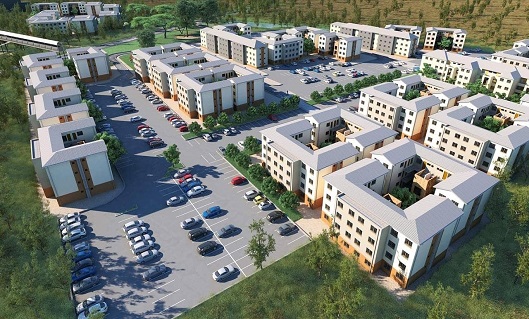Office of the Premier 2021/02/22 - 22:00

Thembisa Shologu
The Gauteng City Region has taken a lead in promoting a post-apartheid urbanism and sustainable urban agenda.
Addressing the Legislature on Tuesday, 23 February, Gauteng Premier, David Makhura said this spatial injustice must be reversed and confronted with a radical counter narrative of inclusive, sustainable and transformative urbanism.
“In achieving this objective, the first thing is land use settlement, using land use is a strategic tool for transforming social, spatial and economic relationships among our diverse people in order to integrate them so that they live together as equals. Linked to this is the land release programme,” said Premier Makhura.
Government has introduced the land release programme, which allows it to provide serviced sites for people to build houses for themselves.
“We are happy to report that 9151 sites have been identified as part of the land release programme across the province and the handover process was affected by COVID-19 regulations.
“The administrative processes is being finalised to ensure that the handover process starts in April,” said Makhura.
The Gauteng government has, since May 2019 completed 18 154 units, 14 677 sites for its residents including the registration of 13 789 title deeds and the formalisation of 52 townships.
“We are on track with the revival of four urban renewal projects which we have identified, in line with the commitment we made in 2019.
“We continue to make progress in the formalisation of informal settlements and upgrading of hostels across the province, not much progress has been made on that issue as we would want but it is an important focus of our government.
“This work is part of our programme of transforming Gauteng, specifically the townships, to improve urban quality of life,” he said.
Makhura said the provincial government was equally aware of land invasions, especially where we have identified land for serviced stands and the building of human settlements.
“Land invasions especially in the South of Johannesburg have become a sore sight in our province. We are working with municipalities and law enforcement agencies to stop land invasions,” he added
RELATED NEWS
No related news

